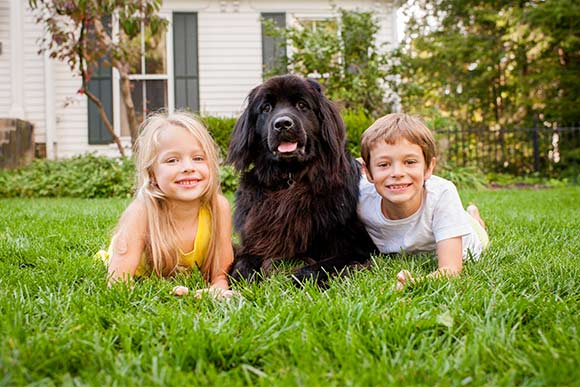Three tips: local organic lawn man on growing truly green grass
 Good Nature Organic Lawn Care
Good Nature Organic Lawn Care
Inspired by what he learned in high school biology class about the dangers of chemicals and fertilizers used to make lawns weed-free and green, Alec McClennan founded Good Nature Organic Lawn Care in 1999 after earning his engineering degree.
With just a handful of customers and his Subaru hatchback, McClennan set out to educate Clevelanders about the health and environmental factors associated with chemical pesticides and fertilizers, and to prove to them there was a better way to grow lush, healthy lawns.
Today, McClennan has 35 employees, 18 trucks and serves thousands of customers in Cleveland, Akron and Columbus neighborhoods.
“There is a growing interest in doing things without chemicals,” he says, adding that residents are learning that it is possible to have that inviting green and (almost) weed-free lawn naturally. As evidenced by his burgeoning business, the organic trend is growing as well.
McClennan advises his customers to re-think what a lawn should look like. “Change your definition of the perfect lawn,” recommends McClennan. “Chemicals will give you a lawn that really has no useful benefit, except that it’s bright green in springtime and grows really fast. With organic applications you can have a nice, healthy lawn that has a weed or two, but looks great.”
Good Nature customers are happy with the results they see. “What we notice with the people whose lawns we treat, as compared to people who do nothing, their lawns look really, really nice,” McClennan says. “The feeling you get when you walk on your lawn without the chemicals is great.”
As the unofficial start to summer approaches with Memorial Day this coming weekend, McClennan provides some trends and advice on creating a thriving lawn any homeowner can be proud of:
1. Mind the mow
Mow the lawn often, but mow it high, McClennan suggests, but also don’t let it grow too tall. He says you never want to cut more than one-third of the grass blade, cutting more than half of the blade shocks the root system.
Keeping the grass a little longer than the commonly-seen low cut is beneficial on many levels. “The higher you mow, the deeper the roots will be,” McClennan explains. “Longer grass shades and cools the soil so the grass stays greener longer. And problem weeds have a hard time getting established.”
Additionally, when feeding the soil, organic fertilizers keep nature’s process in order by feeding the microbes in the soil, which in turn feeds the grass.
Despite what many people think, late summer is the best time to plant grass seed. “People usually think spring is the best time, but with the warm soil temperatures and cooler nights the grass germinates better,” he says of fall planting.
2. Going retro on the grass
McClennan says he has noticed a growing trend in his customers going for a natural look, or what he calls a “retro lawn.” Back in the 80s, he explains, people would choose their grass seed based on how much clover was mixed into the seed — a beneficial addition to the lawn — but then customers began focusing on more of a golf course look.
But the clover trend is now coming back in style. “People are becoming more interested in having more clover in their yards,” McClennan notices. “Clover pulls fertilizer out of the air and brings in nitrogen to make the grass greener, and having clover in the lawn prevents obnoxious weeds, like dandelions, from establishing themselves.”
McClennan says Good Nature offers a micro clover, which is smaller than regular clover, flowers less and is easier to grow.
There are many varieties of grass seed to choose from today, some of them offer greener grass, while others don’t require as much watering and still others provide different types of turf. McClennan suggests considering the different benefits and desired results before choosing a seed variety.
3. Discourage pests
One downside of outdoor living in the summer is the number of bugs that pester you as you grill, eat or just hang out. And the number of ticks in Northeast Ohio is on the rise. McClennan has a solution for that problem.
“People are interested in keeping ticks, mosquitoes and fleas out of their yards,” McClennan explains, adding that garlic helps keep the bugs away. “Eating cloves of garlic keeps the mosquitoes away, but it also keeps my wife away. We use concentrated garlic oil and spray it on everything. We’re always experimenting with different organic repellents, but we’ve used garlic and peppermint oils for a long time.”
While McClennan admits that the spray is a bit stinky, the odor is just temporary for humans. “It smells for about an hour,” he says. “But the bugs smell it for a lot longer.”
Further reading: last November McClennan published A Beautiful Lawn Organically to provide direction to those looking to switch to organic. “I've noticed a whole segment of people who want to have a nice lawn but like doing things themselves,” he explains. “We spend time helping them and figured it made sense to write up a guide for maintaining a lawn without chemicals and it turned into the book.”

